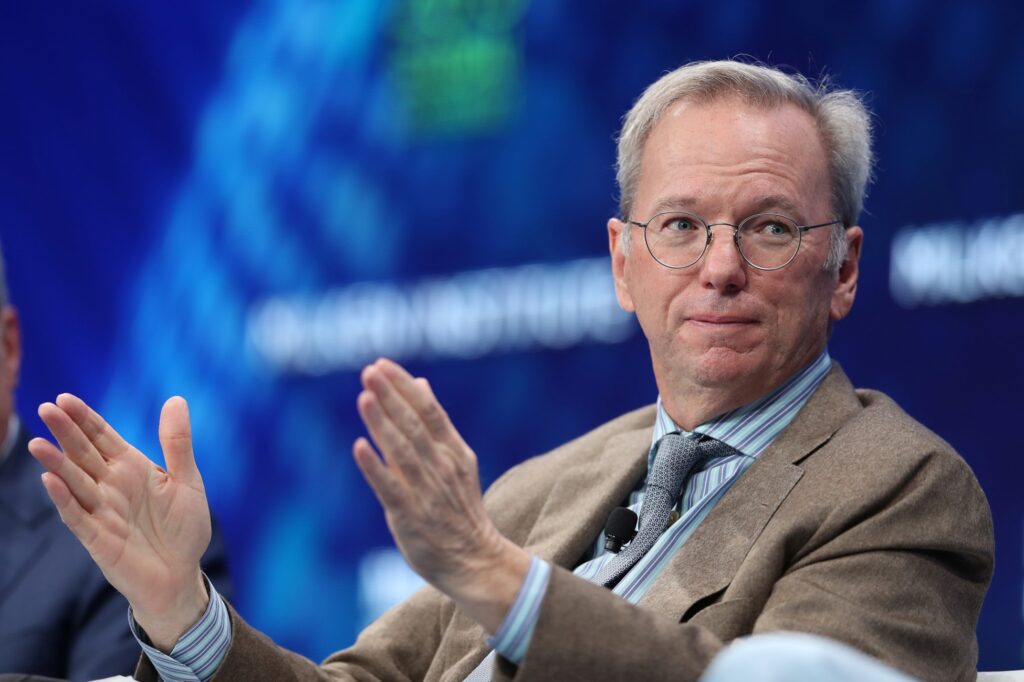In a recent captivating article from MIT Technology Review, Eric Schmidt, former CEO of Google, takes us on a thrilling journey into the future of artificial intelligence and its profound impact on our world. Schmidt’s visionary insights shed light on the remarkable potential of AI and its transformative power across various scientific domains. As we delve into Schmidt’s predictions, it becomes evident that AI is poised to reshape the scientific landscape, ushering in an era of unprecedented discovery and innovation.
A Glimpse into the Future of Science
One of the groundbreaking advancements Schmidt highlights is the remarkable potential of FourCastNet, a weather forecasting system that has shattered the boundaries of traditional predictions. Gone are the days of limited weather forecasts for the week ahead. FourCastNet generates thousands of possibilities, meticulously capturing the likelihood of rare yet devastating weather events. This breakthrough provides vulnerable populations with valuable time to prepare and evacuate and offers a glimpse into the potential of climate modelling to reshape our world on a global scale.

Schmidt’s vision extends beyond weather forecasting, envisioning a future where AI-powered tools propel science into a thrilling and transformative era. By alleviating scientists from mundane tasks, AI frees them to focus on creative breakthroughs and discoveries that would typically take decades to achieve. Schmidt emphasizes the need for sensible regulation and fostering innovation to ensure that AI unlocks new realms of possibility and redefines the scientific process.
While large language models have garnered significant attention, Schmidt highlights the diverse model architectures within the AI realm that hold even greater potential. The horizons of scientific possibilities are expanding from smaller, specialized models driving monumental progress over the past decade to larger deep-learning models incorporating cross-domain knowledge and generative AI. These advancements allow us to venture into uncharted territories of innovation, with AI making its mark in various domains and transforming the landscape of scientific research.
Real-world applications of AI are already transforming the scientific landscape. Researchers at McMaster and MIT have harnessed AI’s potential to combat antibiotic-resistant bacteria. At the same time, Google’s DeepMind model has achieved breakthroughs in controlling nuclear fusion reactions, propelling us towards a clean-energy revolution. In the field of healthcare, AI-powered devices have gained FDA clearance, revolutionizing radiology and paving the way for further advancements. These examples illustrate AI’s profound impact on scientific endeavours and highlight the immense potential for future breakthroughs.
Schmidt argues that the scientific process is on the verge of a paradigm shift. AI tools are revolutionizing literature reviews by scanning vast databases and generating concise and accurate summaries of existing research. Hypothesis formulation becomes more exciting and precise, with AI models predicting the next big discovery in physics or biology. Experimentation becomes faster and more efficient, reducing costs and enabling bolder interdisciplinary exploration. Integrating AI capabilities into self-driving labs is another frontier that promises to accelerate the pace of scientific discovery like never before, with automated robotic platforms interpreting experimental results, recommending future experiments, and autonomously executing them.
Embracing Regulation, Transparency and Collaboration
Despite the immense potential of AI, Schmidt reminds us of the importance of responsible regulation and oversight. Ethical AI use is crucial, and while AI safety measures have advanced, vigilance remains necessary to safeguard against potential hazards and unintended consequences. Striking the right balance between harnessing AI’s power and mitigating risks is essential.
Regulation and government support play a crucial role in unleashing the full potential of AI in science. Schmidt emphasizes the need for smart and well-informed regulation that fosters the beneficial application of AI. Both tech giants and open-source models should be subject to regulations that ensure AI’s responsible and ethical use. Governments and philanthropic organizations also have a significant role to play by supporting scientific projects with high social returns, particularly in critical areas such as climate change, biosecurity, and pandemic preparedness.
Transparency and collaboration are essential pillars for scientific progress and public trust. Open access to articles, data, code, and models promotes replicability and trust in scientific findings. Schmidt advocates for increased transparency, especially in classical AI models, acknowledging that complete transparency may only sometimes be feasible due to safety concerns. Governments, philanthropy, and academia can collaborate to drive breakthroughs by ensuring access to powerful databases and aggregated knowledge.
A Promising and Optimistic Future
The future Schmidt envisions is promising and optimistic. The journey towards widespread AI adoption in science may present challenges, but it is a time filled with boundless optimism. Unlike previous paradigm shifts, AI empowers us to combine information in extraordinary ways, fueling creativity and accelerating scientific progress to unprecedented heights. By harnessing AI’s potential, embracing regulation, and fostering collaboration, we can unlock a future where scientific discoveries unfold astonishingly, benefiting humanity as a whole.



